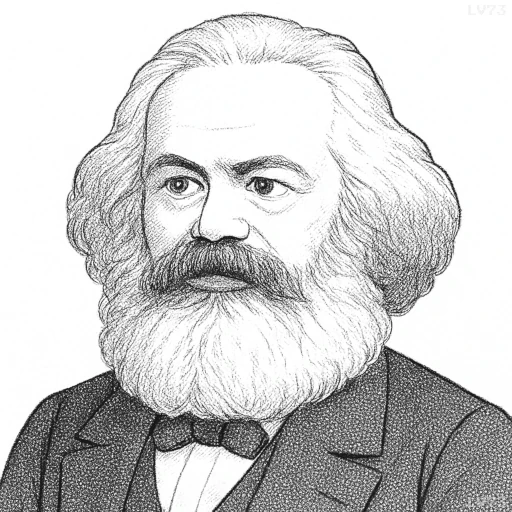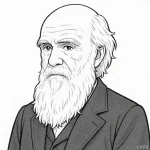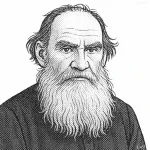“The human being is in the most literal sense a political animal, not merely a gregarious animal, but an animal which can individuate itself only in the midst of society.”

- May 5, 1818 – March 14, 1883
- Born in the Kingdom of Prussia (Germany)
- Philosopher, economist, political thinker
table of contents
Quote
“The human being is in the most literal sense a political animal, not merely a gregarious animal, but an animal which can individuate itself only in the midst of society.”
Explanation
In this quote, Marx highlights the fundamental connection between the individual and society, suggesting that humans cannot fully develop their identity or potential outside of a social context. Unlike other animals, who may live in groups but do not depend on society to shape their existence, humans are political animals in the sense that society is essential to their individualization. For Marx, human nature is not something that exists in isolation; it is formed and realized through participation in the social and political structures of the collective. This view challenges individualistic or isolationist notions of human identity, emphasizing that individual self-realization can only happen when humans are actively engaged in and shaped by the wider social fabric.
Historically, Marx saw the rise of class society and political institutions as central to the development of human identity and labor. He argued that the division of labor and the rise of private property led to the alienation of individuals from their true human nature, as economic and political systems began to organize society in a way that separated people from the products of their labor and their communal relationships. In this sense, Marx believed that human beings were increasingly estranged from their essential political nature as society became more fragmented and divided by class. However, true individuality and freedom could only be realized in a classless society, where the collective life of humanity is reorganized in a way that fosters genuine human development.
In modern society, Marx’s idea of the political animal is still relevant when we consider how individual identity is often shaped by social structures and political systems. The political, economic, and cultural forces around us influence who we are, how we relate to others, and how we define ourselves. For instance, class divisions, social inequalities, and cultural norms all contribute to shaping individual lives and opportunities. At the same time, people continue to seek individual fulfillment through their engagement with social movements, political activism, or collective action, further reinforcing the idea that society is indispensable for human self-realization. Marx’s quote invites us to reflect on how, even today, our political and social contexts profoundly influence our sense of identity and humanity.
Would you like to share your impressions or related stories about this quote in the comments section?


